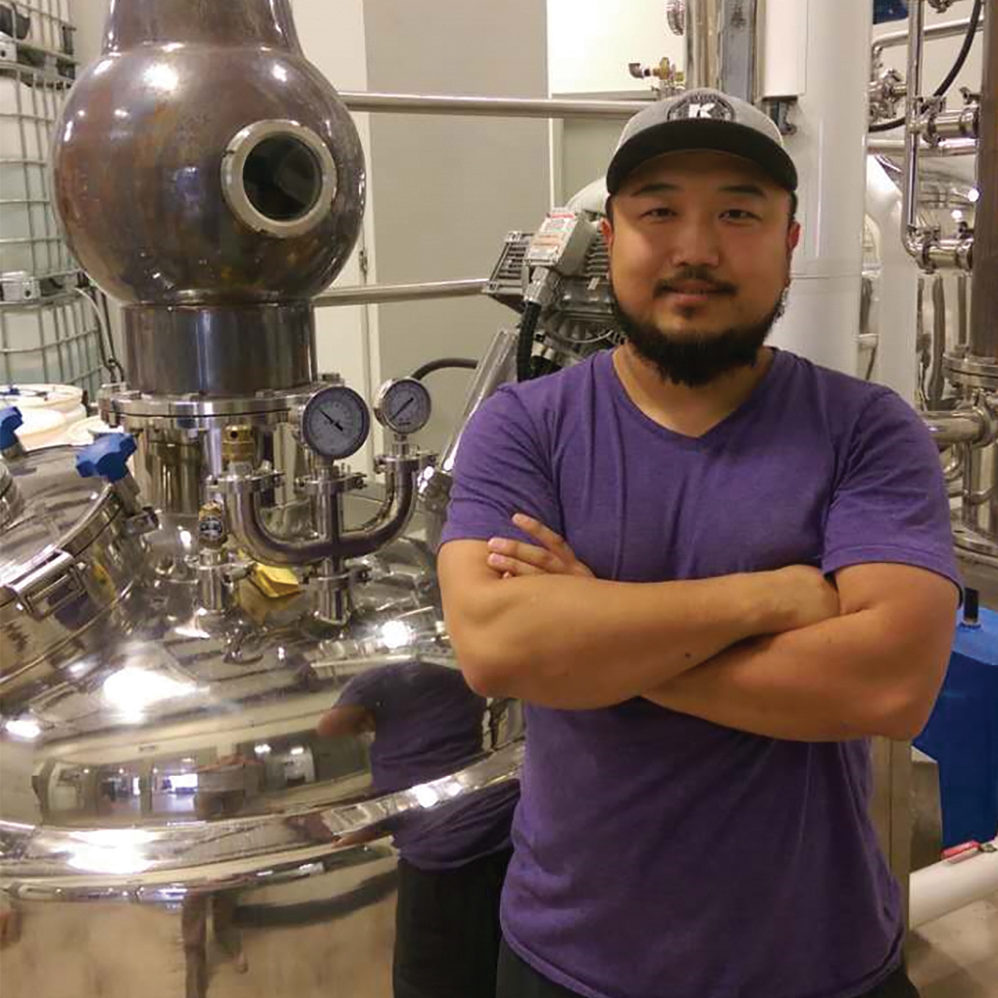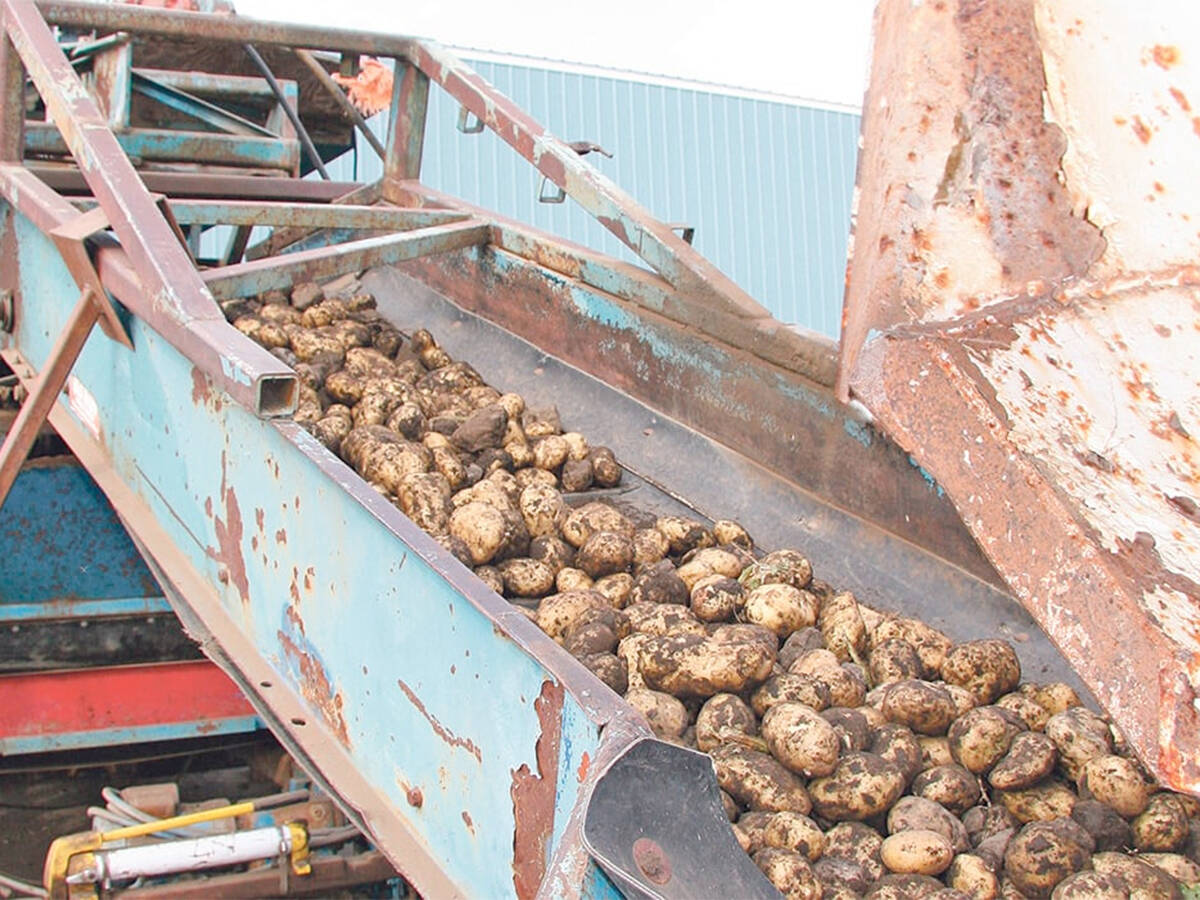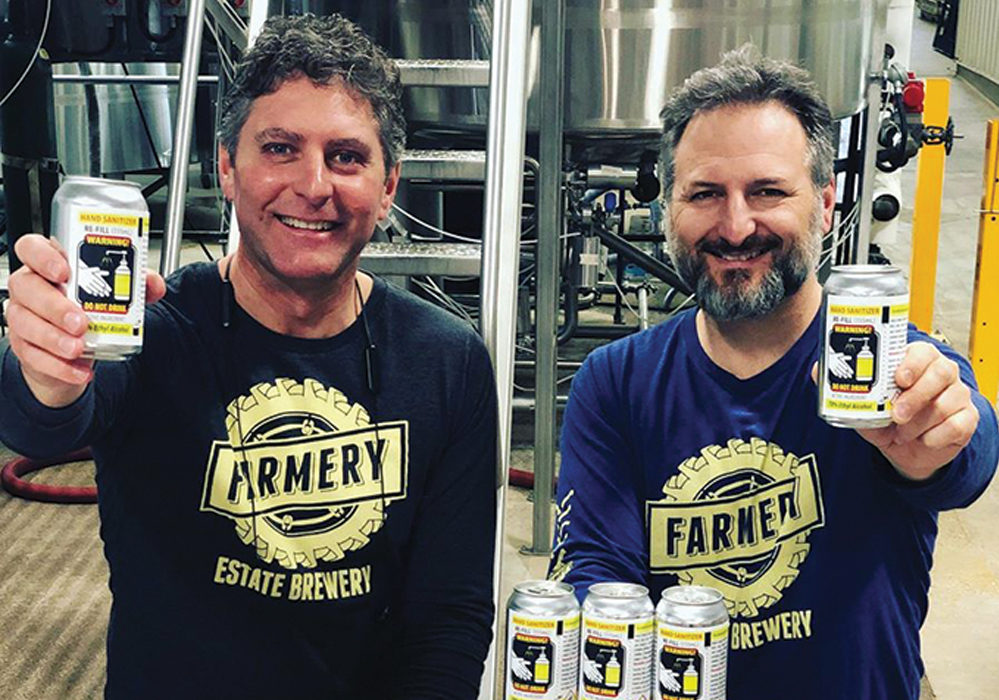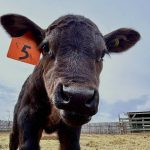It was supposed to be a cool way to help out. Now it’s all they can do to keep up.
“It’s been insane,” said Lindsay Gillanders, spokesperson for Capital K Distillery.
“We thought we’d produce a little bit of it,” Gillanders said. “We had no idea that the shortage of hand sanitizer was so severe.”
The small Winnipeg distiller, founded in early 2017 by Jason Kang, pivoted to hand sanitizer from craft vodka just over two weeks ago as the COVID-19 pandemic ramped up in Manitoba.
They were kicking the idea around when they heard another distiller had already made the switch. They started getting calls.
By March 30, they’d shipped 3,000 bottles of sanitizer and had another 16,000 on order. Gillanders said they’d been forced to stop taking orders for now.
Their production volume has far outstripped what they would make in vodka per week, she said.

Capital K’s claim to fame is it produces its line of boutique liquor exclusively from Manitoba-grown grain.
In Neepawa, Farmery Estate Brewery also made the switch. They announced on social media that they had sanitizer for sale on March 25. As of April 2 they were sold out.
“Words cannot express how we are all feeling in this unpredictable and life-changing time,” they said in a statement posted to Instagram on April 2. “Our apologies for those patiently waiting.”
Farmery produces several popular “homegrown” craft beers and other beverages and food products.
Gillanders said Capital K received orders from hospitals, nurses, firefighters, people in the corrections industry, and private individuals.
Read Also

Potato growers beware new PVY strains
Newer strains of potato virus Y (PVY) are creating headaches for potato farms in Eastern Canada, and Manitoba farmers should pay attention
“It’s been humbling,” she said.
At Capital K, the process of making hand sanitizer is surprisingly similar to making vodka, Gillanders said. The difference is that when they make vodka, they take only the best alcohol — the “heart run” — and leave the rest. With sanitizer, they use the lower-quality alcohol also.
They dilute the alcohol to 65 per cent with water, and add a denaturing agent so it’s no longer potable.
Farmery, a brewery, uses 70 per cent ethyl alcohol and adds homegrown hops, according to a Twitter post.
Both operations said they’re working as fast as possible to fill orders.
“This is beyond a ‘business’ objective,” Farmery wrote. “This is our dedication to serving you and our community.”
















